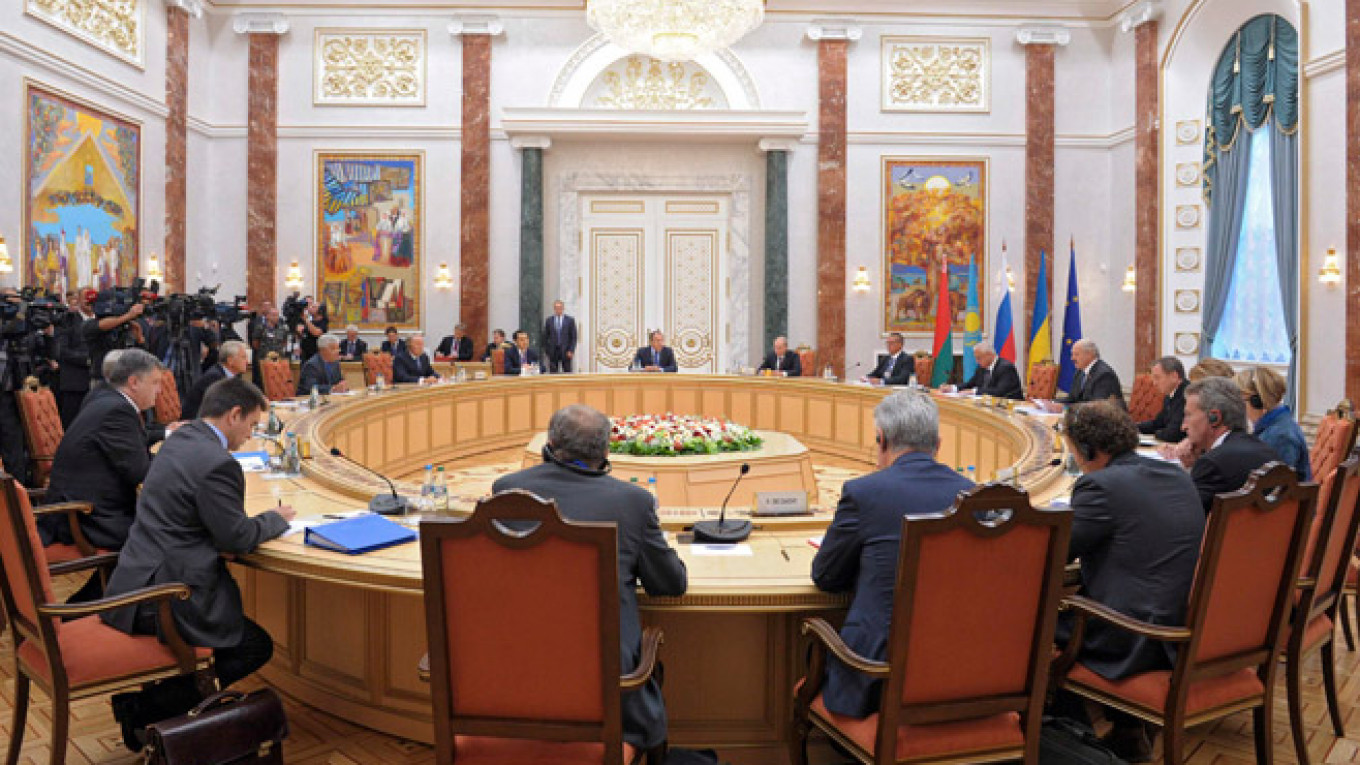Согласование: coming to an agreement
Years ago when I was working on a big communications project and people asked me what the hardest part of my job was, I would say: Согласование!
Now when people ask me the hardest part of my job, I say: Figuring out how to translate согласование. Согласование means "the process of coming to an agreement," which in the context of my job meant getting 10 people in six organizations — state, non-governmental, Russian and American — to all agree on a text.
I guess I'd translate this as getting everyone's approval or maybe getting everyone on the same page. But that doesn't really convey what the work entailed. Actually, getting them all to agree on something was like herding cats.
Согласование is the noun associated with a verb pair you probably use all the time: соглашаться/согласиться. Translation isn't tough here: С этим решением я не согласился (I didn't agree with that decision). Я с ним полностью согласен (I completely agree with him).
Sometimes, however, you might stray a bit from a literal translation: На самую смерть соглашусь скорее, нежели на требование ваше! (I'd rather die than agree to your demands!)
But in the workplace, согласование is a more complex process — see above — and can be trickier to translate. For example, when several authors edit a text, the miserable process of producing one version everyone agrees on is called согласование текстов (text harmonization).
When you have all the authors sitting around the table to work on it, you can call it процесс согласования (negotiating process). As you explain to one author why another author's ideas should be represented, you might refer to согласование интересов (accommodation of interests).
If authors or bosses cannot be brought together in one room, you might pass around лист согласования (sign-off sheet). And after you get everyone to agree, you might write up протокол согласования (memorandum of agreement).
This process might concern more than texts. For example, sometimes organizations have to carry out согласование политики (policy alignment or harmonization). Or a consultant might sit down with a project head for согласование работ (determining the scope of work). Some companies even have главный менеджер по согласованиям (general approvals manager) or проектная группа по согласованиям (project approvals group), or even отдел согласование (compliance department). The people who work in them are called святые (saints).
If your task is getting a bunch of organizations to work in harmony, you can call it координирование: Мы получили распоряжение прибыть на совещание для координирования действия всех научных учреждений (We were ordered to attend a meeting to coordinate the work of all the scientific institutions).
In the world of diplomacy, the word урегулирование (settlement, dispute resolution) is often used: Главная задача — это не допустить срыв процесса политического урегулирования конфликта (The main task is to prevent a breakdown in the process to find a political settlement for the conflict). In other contexts, утряска (sorting out), from the verb утрясать (to shake out), comes in handy: Пока шла утряска деталей, дата окончательного вывода войск приближалась (While the details were being ironed out, the date for the final troop withdrawal was growing close).
If you are an optimist, you can simply say: Не беспокойся! Всё утрясётся! (Don't worry! Everything will work out fine).
Michele A. Berdy, a Moscow-based translator and interpreter, is author of "The Russian Word's Worth" (Glas), a collection of her columns.
A Message from The Moscow Times:
Dear readers,
We are facing unprecedented challenges. Russia's Prosecutor General's Office has designated The Moscow Times as an "undesirable" organization, criminalizing our work and putting our staff at risk of prosecution. This follows our earlier unjust labeling as a "foreign agent."
These actions are direct attempts to silence independent journalism in Russia. The authorities claim our work "discredits the decisions of the Russian leadership." We see things differently: we strive to provide accurate, unbiased reporting on Russia.
We, the journalists of The Moscow Times, refuse to be silenced. But to continue our work, we need your help.
Your support, no matter how small, makes a world of difference. If you can, please support us monthly starting from just $2. It's quick to set up, and every contribution makes a significant impact.
By supporting The Moscow Times, you're defending open, independent journalism in the face of repression. Thank you for standing with us.
Remind me later.








